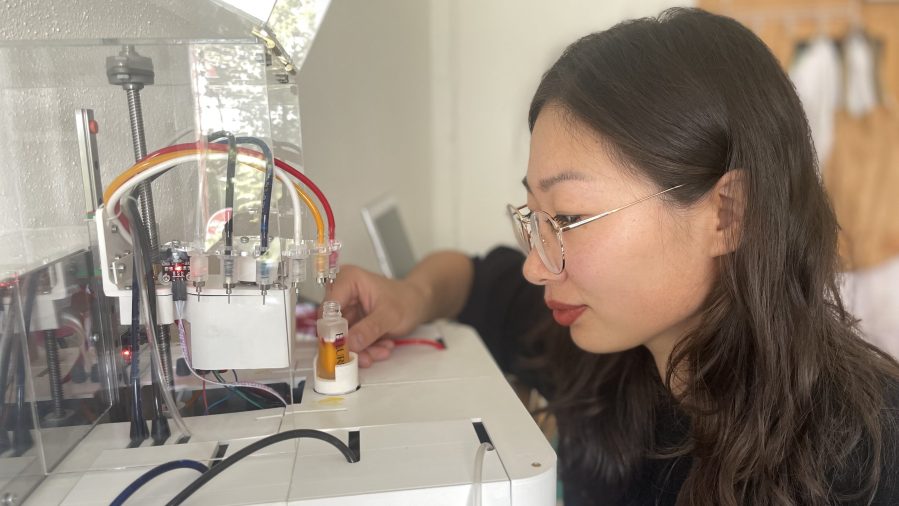The beauty industry generates a lot of waste. Technology can help.

Beauty products generated about $430 billion in revenue last year, and according to an analysis from McKinsey, the market is projected to grow 6% annually over the next four years.
But there’s an ugly side to all that growth.
Even as bottles of shampoo, moisturizer, lipstick and perfume fly off store shelves, it turns out we’re buying a lot more of these products than we’re actually using. The beauty brand Olay has estimated that about 80% of purchased beauty products aren’t actively used.
Sweden’s biggest technical university, KTH Royal Institute of Technology, is home to one tech startup that’s trying to cut beauty waste. It was co-founded by a former student, Selah Li, who explained why it’s unique.
“Ellure is the world’s first manufacturing-as-a-service platform for beauty products. We produce stuff on demand — perfume and nail polish and lipsticks.”
Ellure uses robotic technology, artificial intelligence and 3D printing so customers can design their own products, and they’re made within minutes. The idea is that you’re more likely to fully use something if you’ve helped create it. Plus, brands generate less waste because they’re no longer batch producing items that might not sell ahead of their “best before” dates. This, she said, is the game changer.
“In the future you could go into a shop. They will still have things on the shelf — bestsellers. But for the things that you really need for yourself, you would go to a consultation and then get it in a few minutes.”
It’s not cheap, though. Each lipstick costs around $27. But Ellure is one of a growing number of Nordic beauty startups that hope to change the way we shop. In Finland, Revieve has developed online tools that use AI to guide customers to the items that best suit their skin tones and types. They’re already used by brands including Babor and Shiseido. The company’s chief marketing and product officer, Irina Mazur, explained how it cuts waste.
“The shoppers that don’t know which products match them well resort to experimenting with numerous products in a quest to discover what suits them best. That trial and error contributes to the accumulation of waste.”
At Lund University in southern Sweden, sustainability researcher Jessika Luth Richter isn’t convinced that personalized product tools will work for everyone.
“It does depend on whether they see that time spent trying to find the right products as also an enjoyable experience and worth that time. Also, there are people that would prefer having an actual person helping them as well.”
The question is whether this new tech will really limit the beauty products we buy or just encourage us to shop more.
The future of this podcast starts with you.
Every day, the “Marketplace Tech” team demystifies the digital economy with stories that explore more than just Big Tech. We’re committed to covering topics that matter to you and the world around us, diving deep into how technology intersects with climate change, inequity, and disinformation.
As part of a nonprofit newsroom, we’re counting on listeners like you to keep this public service paywall-free and available to all.
Support “Marketplace Tech” in any amount today and become a partner in our mission.


















